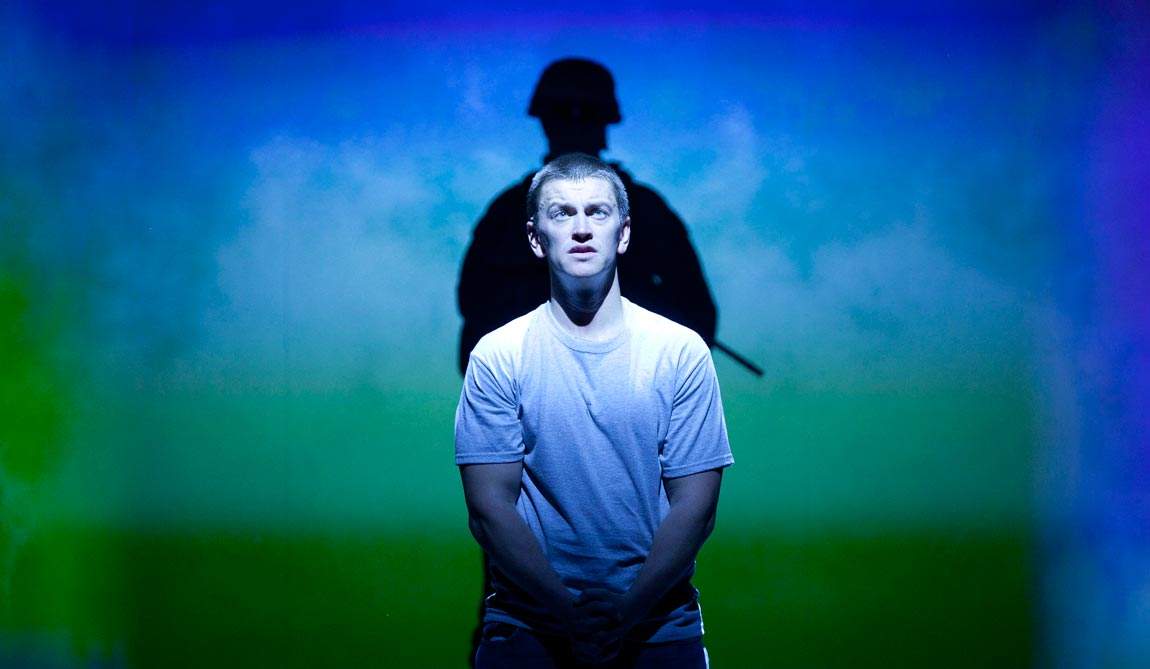The Long Way Home – Sydney Theatre Company
Members of the Australian Defence Force put in a brave performance on stage.
Overview
We usually assume, when at a play, that the main purpose of the undertaking was to create a great work of art. But in the case of A Long Way Home, it's secondary to (or at least shared with) with another goal: to heal. That it's an affecting, entertaining and great work of art is a bonus.
The targets of said healing are Australian Defence Force servicemen and women both the 15 involved in developing the production and the many, many more who it's hoped will come see it. On opening night, you could hear pockets of raucous laughter indicating where jokes had been deeply, deeply understood, so it sounds like the finished product is right on the mark.
The Long Way Home is directed by Stephen Rayne, who led a similar production, The Two Worlds of Charlie F, at London's Theatre Royal Haymarket. It was after seeing that show that ADF Chief General David Hurley approached the Sydney Theatre Company with the idea of a partnership. This is a pretty unusual marriage some of these performers haven't seen a work of theatre before but it's a successful and eye-opening one.
The script, built by playwright Daniel Keene based on weeks of collaboration with the soldiers, is a strong one. It's a composition of fragments privates talking to themselves on nightwatch, a man in a coma who speaks only whispered riddles, four friends whose childhood playtime has imparted on them the mythology of war that calls to mind the candid, boysy style of Generation Kill (probably on purpose; it's referenced as a favourite. The Hurt Locker, meanwhile, comes in for some ridicule).
The through-line could be stronger but it's involving enough, and it must be said, the main performers are pretty spectacular when you consider that they're soldiers without dramatic training. Anchoring the vignettes are the stories of two returned servicemen struggling to adjust to regular life while saddled with PTSD (plus depression, plus anxiety), and in those hefty roles, Tim Loch and Craig Hancock make the acting gig look near easy. James Whitney proves a bit of a scene-stealer, too; he's got great character and conviction.
The non-actors are in each scene paired or grouped with a professional actor, which must be the trick that keeps The Long Way Home on such a steady course. The show also makes a huge visual impact, thanks to a complex and ever-shifting array of sliding walls, lights and video projections. The approaching silhouettes of fully geared-up soldiers, the exhilarating bellow of 'Let the Bodies Hit the Floor' it all adds up to make a powerful impression. This is no Powerpoint presentation at the RSL.
The ultimate test passed, however, is how humanising this show is. I went in as someone with no bonds to the Australian war experience, and I came out understanding something of the people who go to war, and of the people who return. There's no macro political criticism in a circumstance like this, but on the micro, personal level, it is unabashed.
After leaving the STC, the play will embark on a national tour, including performances at Brisbane's QUT Gardens Theatre and Melbourne's Merlyn Theatre.





